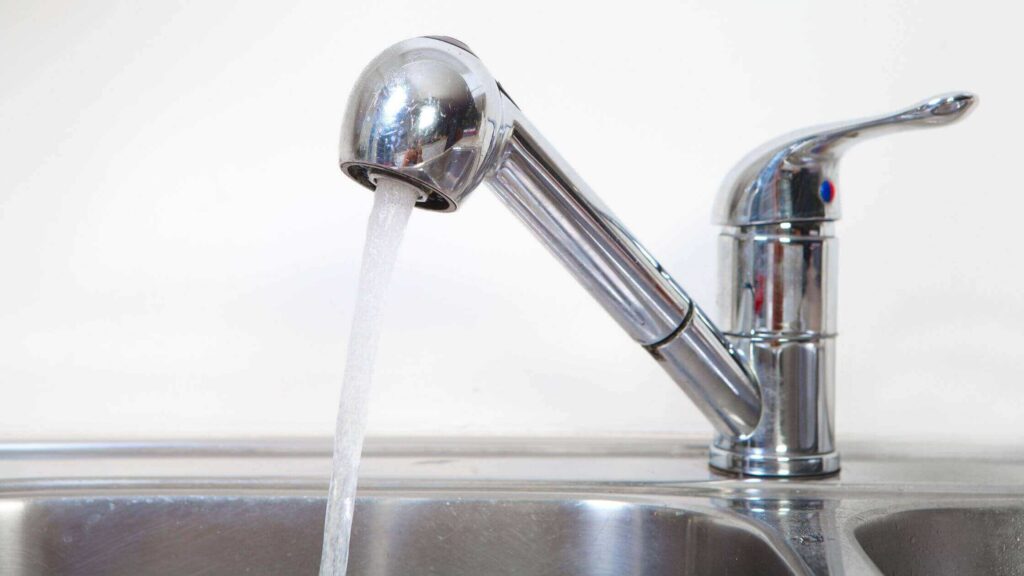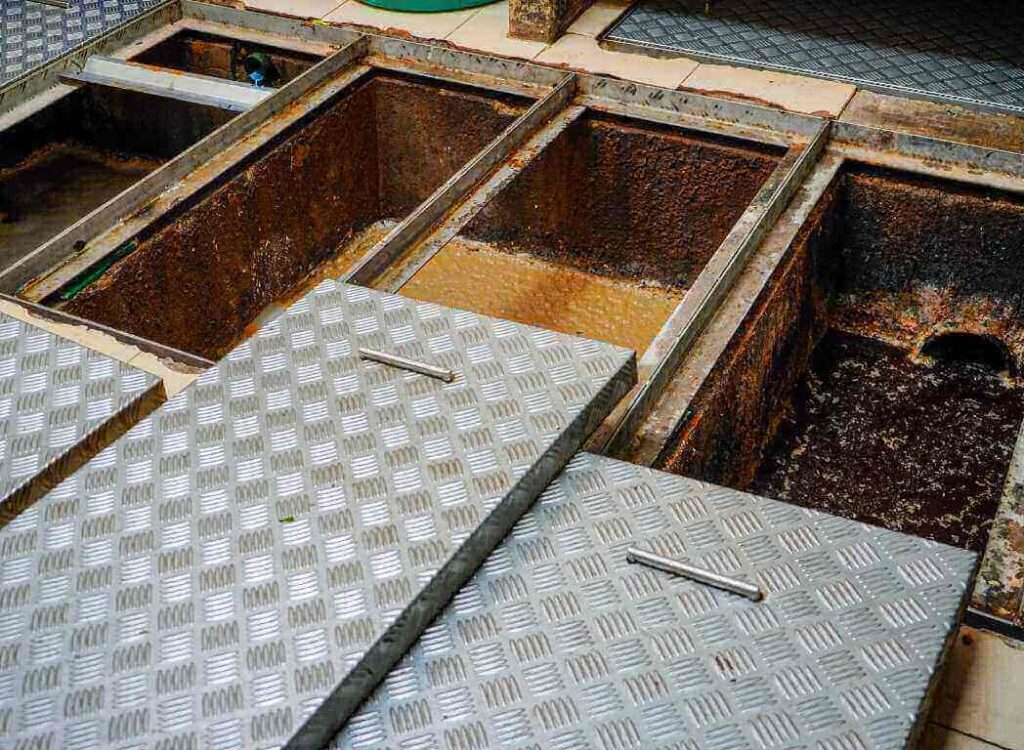As a restaurant owner, you know how stressful it can be when you have a busy restaurant and suddenly begin to deal with a clogged kitchen drain. A clogged kitchen drain halts dinner service and is not good for business! Evidently, this is every commercial kitchen owner’s worst nightmare.
So, preventing drain line backing in your commercial kitchen is key.
A kitchen sink gets clogged because fats, oils and grease (FOGs) are put down the drain.
FOGs will harden in the drain and cause blockage. Pouring hot water may offer a temporary relief, but it is only a matter of time before that remedy stops working. Over time, grease will compact and cause a serious clog.
The following are proven tips to help you avoid your kitchen drain lines from backing.
1. Pour some vinegar down the drain lines.
This is a cost-effective method for unclogging a clogged drain line. If you notice the drain lines start to back up, try pouring a cup of vinegar down the clogged pipe. Let it sit for 30 to 40 minutes.
Thanks to the high acid content, vinegar will break down the organic content blocking the drains. And for even quicker results, add baking soda to the mix.
This can provide a quick fix for a partially clogged pipe. However, for a completely clogged drain, professional help may be necessary.
2. Run hot water through the sink after using it.
You may not be able to protect your drain lines from every bit of grease and oil. Each time you wash a dish, you’ll have to assume that you are washing some FOG down the drain.
Running hot water after every use can be an effective solution against any FOG buildup. The hot water will cause any FOG you’ve rinsed down to dissolve.

3. Use an absorbent to wipe away FOG from dishes.
Foods such as meats, sauces, and sautéed vegetables can leave an oily residue on dishes. And over time, it’ll build up and cause a number of problems for your commercial kitchen.
Luckily, you may be able to avoid issues by using an absorbent to wipe FOG from dishes. A good example of an absorbent material is a paper towel.
4. Place fats, oils and grease in a container.
When fats, oils and grease get cold or reach room temperature, they become solids. When they solidify, it results in clogged pipes.
It’s for this reason that you should never pour FOG down your drain lines. The best way to deal with any fats, oils and grease is to first let them cool down. Next, discard them into a container and then toss them away.
5. Dispose of food scraps properly.
Food scraps can become even more problematic than FOG. They are larger, so they will block your commercial kitchen drain pipes even more easily.
To eliminate this problem, always put food scraps in the trash before washing the dishes. Make sure you do this regardless of how small the scraps may look.
Also, note that you should have a compost bin for compostable food scraps.
6. Encourage your employees to scrap dishes.
If you serve gravy or sauces at your commercial restaurant, cleaning dishes afterward can be difficult. This is especially true if your customers hold onto their plates for a considerable amount of time.
Scraping those plates is key to avoiding your kitchen drains from clogging up.
You might even consider giving your restaurant employees certain incentives to throw away those dishes. After all, it might be impossible for you to constantly watch over them to see who’s following the rules and who isn’t.
7. Clean your grease trap on a regular basis.
Is your commercial kitchen required to have a grease trap? If so, then you may be able to prevent drain lines from backing up rather easily.
That said, having it and maintaining it are two different things. For effective results, you’ll need to maintain your grease trap from time to time.

According to experts, how often you should clean your grease trap depends on how often your kitchen produces FOGs (Fat, Oil and Grease). Generally speaking, though, experts recommend cleaning it everyone 1-3 months.
If you need help with this, consider contacting Greasecycle. We are a dependable and reliable grease trap pumping and oil recycling company. We want you to focus on your North Carolina restaurant business without having to deal with a grease trap backing up.
Bottom Line
There you have it – 7 tips on how you can prevent drain lines from backing up in your commercial kitchen.
Here is an overview:
- Pour vinegar down the drain
- Let hot water run after using the sink
- Wipe away FOG from dishes using an absorbent
- Place FOGs in a container
- Throw away food scraps properly
- Scrap dishes when necessary
- Clean your grease traps
If you need further help, contact Greasecycle today!




